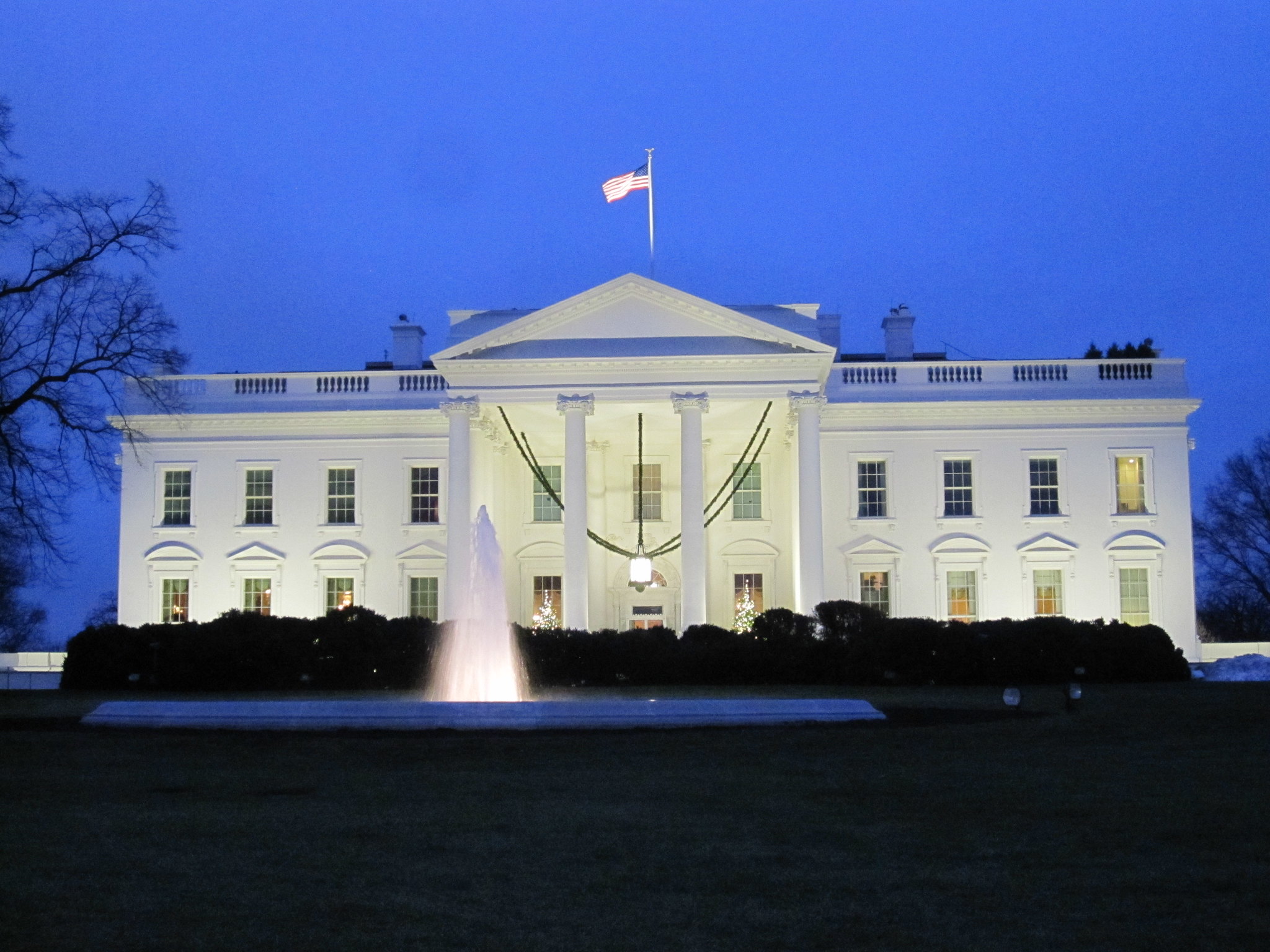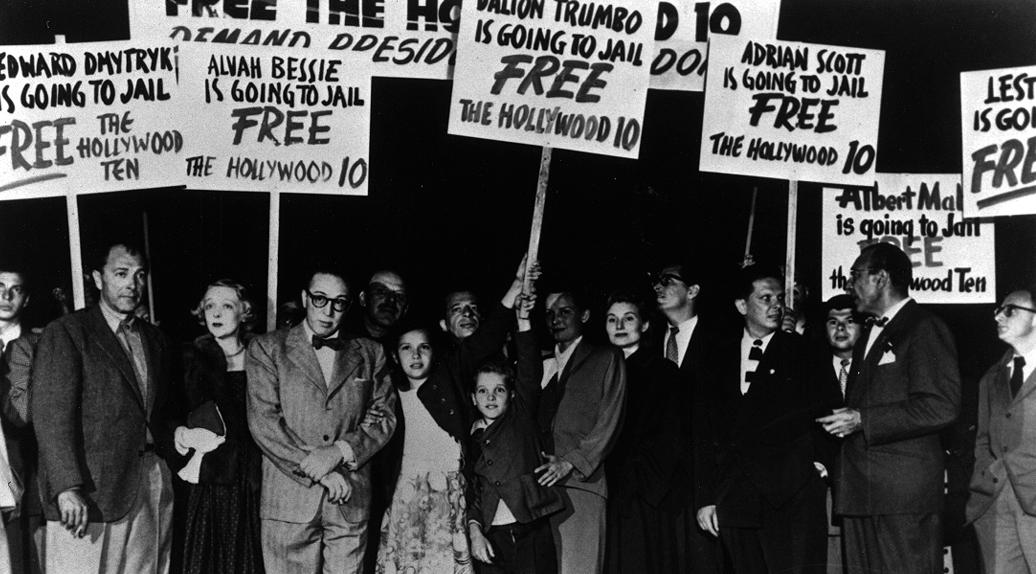The Glut of High-Stakes Cross-Party, Cross-Administration Investigations
The news about the federal investigations of Hunter Biden highlights the growing spate of politically fraught federal law enforcement investigations of prominent political officials or their family members.

Published by The Lawfare Institute
in Cooperation With

The news about the federal investigations of Hunter Biden in Delaware and, at least incidentally, in New York highlights the growing spate of politically fraught federal law enforcement investigations of prominent political officials or their family members.
These investigations come in two basic flavors, both illustrated by the younger Biden’s case. The first occurs when the Justice Department of one political party investigates a prominent person in another party in a context that raises questions about political motivation. Not much is public about the origins of or basis for the Hunter Biden investigation, except that the one in Delaware concerns his taxes and began in late 2018. But the sometimes-unhinged (though sometimes not) accusations made by President Trump and the Republican Party about Hunter Biden, in the context of the election, raise a credible question about whether the investigation is a politically motivated effort to harm a political opponent. (The fact that the investigation did not leak before the election is modest evidence against this conclusion.)
The second arises when the Justice Department investigates a prominent senior executive branch official in its own party, or someone close to that official. This will be the situation with the Hunter Biden investigation the moment Joe Biden becomes president. The danger is that the department will not pursue the investigation vigorously in order to protect the president’s son. This problem will bedevil the next attorney general. Should he or she allow the prosecution to continue in the District of Delaware, and with the same prosecutor? Or should he or she appoint a special counsel to investigate the matter? A special counsel would be warranted. But the counsel would have to be chosen carefully—even with the independence protections for special counsel, there is a serious possibility that the appointee will be seen as less legitimate in pursuing the matter than the current U.S. attorney in Delaware. (Compare the ongoing Southern District of New York’s investigation related to Trump, and imagine if Barr replaced that with a special counsel appointment of his choosing.)
These kinds of cases—which I will call cross-party investigations, and intraparty investigations, for short—have always presented challenges to the appearance and reality of even-handed, nonpoliticized Justice Department law enforcement. The challenges have grown worse in recent years, along three dimensions.
The first is that the nation has become more sharply divided about the perceived reality of wrongdoing on the part of the investigated and even-handedness on the part of the Justice Department. So too have the media.
The second challenge is the number of very high-profile and highly contested cross-party investigations over a short period. The Hunter Biden investigation is the latest. The first in this line was the investigation of the 2016 Trump campaign and presidential transition by the FBI and the Obama Justice Department, which continued with the Mueller investigation. Some elements of this investigation were clearly legitimate and some, clearly not. But the range and identity of legitimate versus illegitimate decisions and tactics here are obviously deeply contested.
Then there is Connecticut U.S. Attorney John Durham’s investigation of the 2016 investigation and beyond. The investigation began as a mere administrative review. I argued at the time, and still believe, that it was an appropriate enterprise in order to get a comprehensive picture of what happened, since Inspector General Michael Horowitz’s relatively narrow review of the matter revealed many problems, and a full picture of what happened was needed for reform. The Justice Department and FBI were, for example, conducting these investigations with inadequate standing guidance on the standard for opening a counterintelligence investigation of the president (assuming that is even possible), and on the proper lines of authority for opening and supervising such an investigation.
But though Durham started out as a credible figure, the review was damaged from the beginning due to Trump’s and Barr’s ceaseless public prejudging of the case (and, for some, Durham’s response to one of Horowitz’s reports). And all of that was before Barr expanded the investigation into a criminal one and then later appointed Durham as a special counsel to ensure that his criminal investigation could continue into the Biden administration. Once again, the nation is divided on the legitimacy of all of this.
The third challenge, exacerbating the first two, is that these investigations—the FBI investigation of the Trump campaign and transition, the Durham investigation, and the Hunter Biden investigation—extended (or will extend) into an administration of a different party. That means that what began as a cross-party investigation where the worry was bias against political opponents will transform, in the middle of the investigation, into an intraparty investigation, where the worry will shift to one party’s desire for self-protection. What much of the country viewed as a legitimate investigation is suddenly in the hands (on that view) of untrustworthy stewards—and what much of the country saw as an illegitimate investigation is suddenly in the hands (on that view) of stewards who should credit this illegitimacy and question, narrow, slow or stop the investigation.
The challenges of cross-party, intraparty and cross-administration investigations are not new. The Watergate Special Prosecution Force lasted into Jimmy Carter’s administration. The Iran-contra investigation began under Ronald Reagan, proceeded through George H.W. Bush’s administration, and ended in the first year of Bill Clinton’s presidency. Clinton Attorney General Janet Reno appointed a special counsel to look at the “Iraqgate” scandal that had previously been examined by a special counsel appointed by George H.W. Bush’s attorney general, William Barr, in 1992. George W. Bush Attorney General Michael Mukasey appointed career federal prosecutor Nora Dannehy to see if crimes were committed in the 2006 removal of nine U.S. attorneys—a task she completed during the Obama administration. And the Obama administration reexamined investigations related to the CIA black site and interrogation program that had been investigated and closed during the Bush administration.
And yet the three recent examples seem different. They seem different because American politics seem (even) more contested and because they all began as cross-party investigations possibly motivated by politics and are all related to one another in a short period of time.
There is no Archimedean point from which to determine which elements of these recent investigations are justified or legitimate, and which not. I have views, but I am not going to convince anyone who doesn’t already agree with me. And that is part of the problem. If the past four years have shown anything, it is that the nation is deeply divided and basically unpersuadable on the legitimacy of these Justice Department actions.
Why does this matter? Because the appearance of even-handed justice is vital to everything the Justice Department does—not just to its high-stakes investigations. And I fear that that appearance is basically impossible to achieve for half the country—which, if right, means that it is basically impossible to achieve at all, since the appearance of even-handed justice is most vital before audiences that do not share the department’s political orientation.
And it matters for another reason. In the past, as noted, one administration has initiated investigations of the actions of a prior administration through the lens of criminal law. But it has happened in recent years so often and at such high levels, and in seemingly (to half the country) politically motivated ways, that one might detect a pattern. One might even say that a norm is developing.
Many people have argued that the Biden Justice Department should continue this pattern by examining the criminal acts Trump might have committed while in office—some arguing for a full-blown broad investigation, others (like my co-author, Bob Bauer, in “After Trump”) for a measured, narrowly tailored one. I don’t think this is a good idea. I doubt Trump has committed prosecutable crimes in office (I am confident that obstruction of justice prosecution would fail), I doubt he will ever go to jail if he did commit criminal acts in office (which would make the effort worse than useless), Trump will thrive off the attention of such an investigation, and the Biden administration will be damaged in pursuing other elements of its agenda (including restoration of the appearance of apolitical law enforcement). But the main reason I am skeptical is that such an investigation would, in the prevailing tit-for-tat culture, cement the inchoate norm of one administration as a matter of course criminally investigating the prior one—to the enormous detriment of the nation. (I do not believe that federal investigations for Trump’s pre-presidential actions raise the same risk.)
There are at least three objections to the conclusion that a criminal investigation of Trump’s acts in office will solidify a destructive norm or practice of regular criminal investigations of prior administrations.
First, such a norm might solidify in any event, independent of how the Biden administration approaches a potential investigation of Trump. Perhaps, and perhaps not. But I am sure it will happen if Trump is investigated for acts committed in office.
Second, some will argue that accountability for Trump is different in kind from prior cross-party, cross-administration investigations, since Trump was a historically bad actor in office who demands special accountability. Going after Trump criminally may thus not be seen as contributing to the larger norm. Perhaps, but I doubt it. The investigation by one administration of the predecessor president for acts committed in office would be a politically cataclysmic event. Especially in light of extreme polarization, and regardless of Trump’s unique malfeasance, it would significantly raise the pressures and incentives for reciprocal retaliation later. This would be true, though probably less so, even if unambiguous evidence that Trump has committed a prosecutable crime—an express bribe in exchange for some presidential favor is a plausible example—pops into public view in the next five weeks, before Biden assumes the presidency.
Third, one might think that not pursuing a criminal investigation of Trump in light of his malfeasance in office would itself be a form of politicization that a department committed to even-handed justice should eschew. As we explained in “After Trump,” political elements invariably inform high-stakes prosecutorial decisions, and properly so. Indeed, any decision to investigate or not to investigate Trump will invariably involve (in part) a cold-blood assessment of political consequences. That is to be expected. Moreover, and relatedly, prosecutors very often, and legitimately, consider the adverse impact on the community in exercising prosecutorial discretion not to prosecute someone who committed a crime. (This is also a major justification for the pardon power.)
I am not claiming that an investigation of Trump by the Biden administration would be illegitimate. I do not think it would be illegitimate, in light of Trump’s behavior in office. But I do think it would be imprudent. My claim rests on a prediction: Going after Trump is unlikely to succeed, legally or politically, and will have deleterious effects for the nation on balance, effects that include solidifying a destructive norm. That said, I think the next attorney general will face enormous pressure to pursue an investigation of Trump. If he or she acts, my prediction will be tested.





